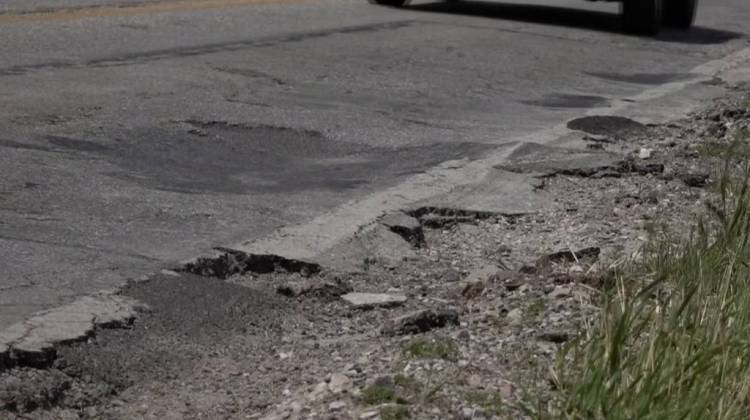
The task force is trying to figure out how to pay for the remaining costs associated with coal plants that retire early. Indianapolis Power & Light will retire some units at the Petersburg coal plant earlier than planned.
Alan Mbathi/IPB NewsThe state is looking into ways to help finance the cost of coal plants that retire early. While the rapid transition to renewable energy may save utility customers money in the long run, it can lead to higher energy bills in the short term.
Indiana University professor Phil Powell is a member of the 21st Century Energy Policy Development Task Force.
“Because Hoosiers have to pay for new infrastructure and quickly-retired infrastructure at the same time. They’re having to bear that burden of transition," he said.
But Powell said securitization may be a way to help. It allows utility customers to pay off coal plants over a longer period of time at a lower rate — leading to lower energy bills.
Kerwin Olson is the executive director of the Citizens Action Coalition. He said securitization can also provide funding for things like retraining workers and replacing local tax revenues that are lost when plants shut down. Olson said it’s a win-win for everyone — except utility shareholders.
“That's where I think the public interest needs to come into play with securitization, because it shouldn't all be about the earnings and profits of utility companies," he said.
Steven Fetter of the energy advisory firm Regulation Unfettered said about half of all U.S. states use securitization for everything from funding storm damage and nuclear plant retirements to reducing renewable energy costs.
Contact Rebecca at rthiele@iu.edu or follow her on Twitter at @beckythiele.
Indiana Environmental reporting is supported by the Environmental Resilience Institute, an Indiana University Grand Challenge project developing Indiana-specific projections and informed responses to problems of environmental change.
 DONATE
DONATE








 Support WFYI. We can't do it without you.
Support WFYI. We can't do it without you.